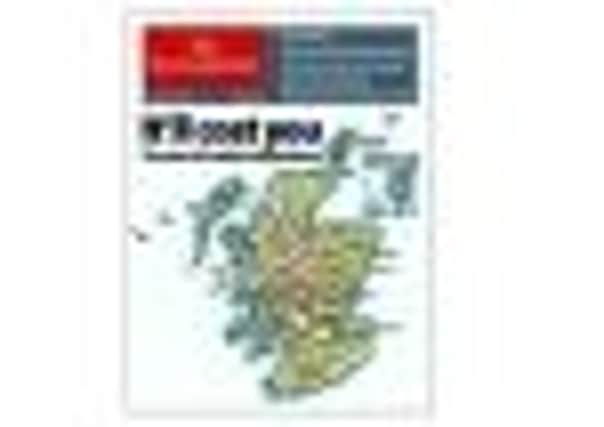Tom Peterkin: Look hard enough and you’ll find some political satire


Wilson was reacting to the outrage that greeted the now-notorious front page of the Economist magazine and its spoof map depicting an independent Scotland as Skintland, with Edinborrow as its capital city.
“Grossly offensive,” was the reaction of one senior SNP figure on Twitter, who appeared to be just one of many political people who had gone out of their way to be offended by this not terribly clever (nor particularly funny) “joke”. In fact, the collective sense of humour failure by Alex Salmond and his acolytes was far funnier than the Economist’s front page.
Advertisement
Hide AdAdvertisement
Hide AdIn his article, Wilson argued that the lack of a really successful Scottish satirical TV show or magazine meant that Scottish politicians of all parties had developed a good conceit of themselves.
This self-importance had grown, because they had been spared from the cutting edge required to prick their thin-skinned pomposity.
As the independence debate heats up, there is more need than ever for a strong satirical voice to emerge. There have been reports that Rory Bremner is brushing up on his Alex Salmond (and presumably his Michael Moore) impression for an independence TV special.
But that is hardly the same as a home-grown satire boom spawned by devolution.
Despite the failure of satire to make an impression on mainstream broadcasting, there have been some decent, but low-key, attempts to lampoon the behaviour of our ruling classes.
For example, this week the following letter reacting to reports of an SNP U-turn on Nato was published in one of those free sheets dished out on the bus. “CyberNat HQ calling all CyberNats. Over the last 30 years we may have given the impression we regarded Nato as a destabilising, imperialist threat to peace that engages in illegal wars and should be forever banished from our dear country,” it said. “This was a slight misunderstanding, what we really meant was that Nato is a fine peace-keeping organisation that Scotland can be proud to be a member of. Please make sure that all future CyberNat communications are clear on this.”
As the letter-writer’s use of the term CyberNat indicates, social networking sites are full of political comment.
A lot of this comment, which emanates from all sides of the political debate, can be a bit too fruity (or nutty) for consumption by normal, easy-going folk.
Advertisement
Hide AdAdvertisement
Hide AdBut gleaming among the rubbish there are a few pearls. The aforementioned front page of the Economist led to Euan McColm, a writer and commentator, tweeting: “Scottish manufacturing up 50pc as the SNP creates phoney outrage over Economist front page.”